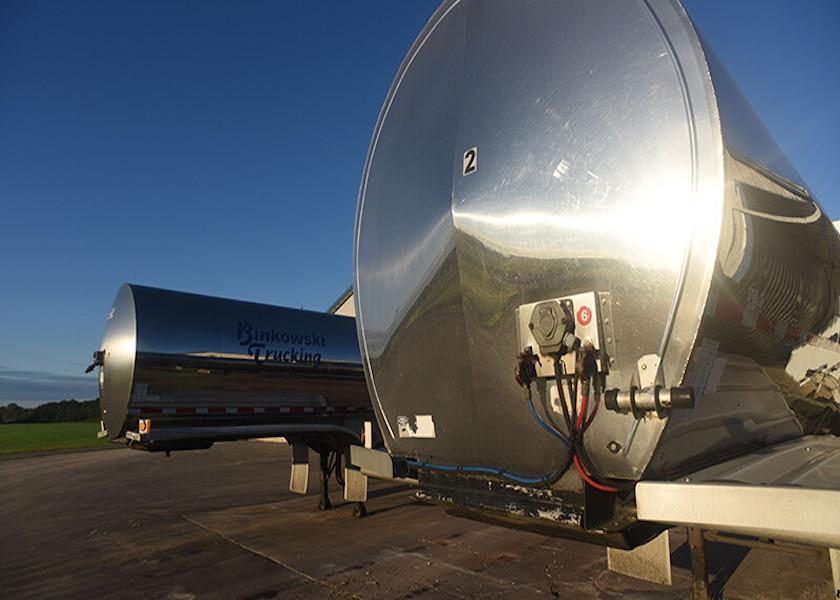How Well Do You Know Your Processor?

A dairy farmer’s worst nightmare is to open an unexpected letter in the mailbox notifying them that they are being dropped by their processor. Solid communication between the processor and the farm is essential and understanding the processor’s strategic long-term vision is also a must. Recently three dairy producers talked about their relationship with their processors in a Farm Journal Farm County Update webinar.
Jordan Mathews, a partner at Rosy-Lane Holsteins in Wisconsin, says they had to get to know a new processor this past year.
Rosy-Lane milks 1,550 cows at one of two locations—the home farm in Watertown, and a newly purchased second farm in Paoli. Earlier this year, Lloyd and Daphne Holterman began the retirement process, and both Mathews and Tim Strobel continue to purchase the business from them, as well as run the day-to-day operations.
“I think it was really good timing for us,” he says.
Mathews shared that they began working with a new processor in June of 2021.
“We were getting to know our new facility, it took us a while to ramp up numbers, there was a lot of communication going into that,” he says. “They’ve been fair to us. I think they were really clear on the product they desired.”
Mathews said that his team at Rosy-Lane focused on controlling the controllables.
“[The processor] put out loads on the product they want and the things they want to see out of our dairy,” he says. “So as long as we control that, we've been able to keep them happy and in return, they're keeping us happy on our milk price.”
At the home farm, Rosy-Lane has had a long-establishing relationship with that processor for nearly 10 years now.
“They’ve been awesome,” he says. “Since the beginning of COVID, they have been pretty transparent about the hardships they're dealing with and how they worked with us.”
In New York, Tyler Reynolds, an owner at Reyncrest Farms, says they too are fortunate with a good relationship with their processor, Upstate Niagara Cooperative. Reynolds milks 1,400 cows and farms 2,700 acres alongside his family near Buffalo.
With three younger partners at Reyncrest Farms, Reynolds shares that they keep an eye on the future and revisit what their farm looks like down the road.
“Three families withdraw from the family farm. We need to continue to grow and be better,” he says. “I believe our co-op understands that.”
Reynolds concurs with Mathews and says it’s the processor’s job to market the milk. His processor sends out a survey at the beginning of the year to get an idea of what farms are thinking in terms of growth.
“I think the biggest thing that we see is the more honest we are with them, the better everybody's going to be in the end,” Reynolds shares. “They need to plan too.”
As chair of the Agricultural Council of California's Dairy Committee for Dairy Farmers of America, Melvin Medeiros with Medeiros Holsteins in Layton, Calif., says that he obviously has a great relationship with his co-op.
Medeiros also shared a story from twenty years ago, when he decided to switch from an independent processor to a cooperative and his mother was upset with his decision.
“We started shipping milk to them in April and got our last check out of them first in June and they filed bankruptcy on the 15th of June,” he said. “Mom still hasn’t thanked me for making that decision.”
Medeiros milks 1,600 cows and farms 500 acres alongside his wife and sons in California’s San Joaquin Valley and shares that he is a firm believer in co-ops. He also believes keeping the communication lines between the producer and the processing open is essential.
“If you can communicate, you make each other so much more efficient. It only benefits the industry as a whole,” he says. “I think that's extremely important going forward and communication between the producer and the processor to make this industry much stronger.”
To listen to the entire conversation with these three producers talk more about issues and challenges they faced in 2022 and how they’re planning for the year ahead, click on Farm Country Update - Farm Journal







